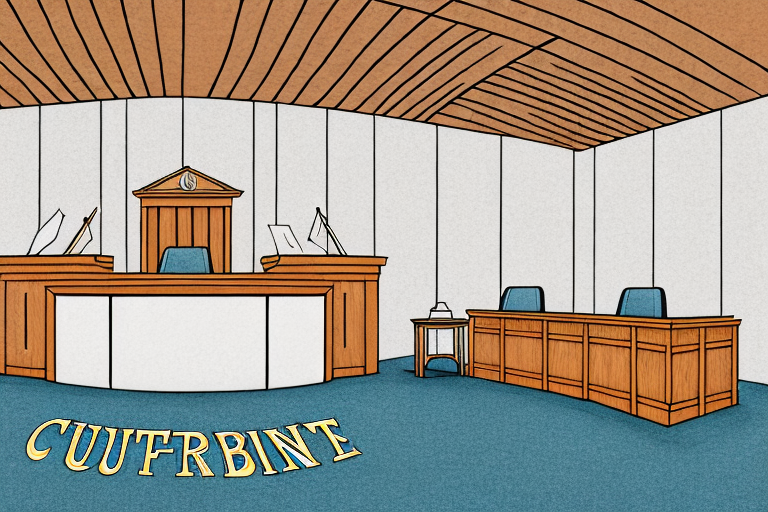In any divorce or separation involving children, custody can be one of the most emotionally charged and contentious issues. A family lawyer can play a crucial role in navigating a difficult and complex custody process, representing a client’s interests and ensuring that the best interests of the child are at the forefront of any custody decision.
Understanding Child Custody Disputes
Child custody disputes can be emotionally draining and challenging for all parties involved. Before delving into the role of best family lawyers in a custody dispute, it’s essential to understand the various types of custody and the factors considered in custody decisions.
Types of Child Custody
Physical custody is the most common type of custody and refers to where the child lives. Legal custody pertains to decision-making authority for the child’s upbringing. Joint custody means parents share custody and decision-making responsibilities while sole custody means only one parent has custody and decision-making authority.
It’s important to note that custody arrangements can be modified over time to reflect changes in circumstances, such as a parent moving to a new location or a child’s changing needs.
Factors Considered in Custody Decisions
In determining custody, courts consider various factors, such as the child’s age and gender, their relationship with the parents, and each parent’s ability to provide for the child’s physical, emotional, and educational needs. Additionally, the court may consider the child’s preferences, the stability of each parent’s living situation, and any history of abuse or neglect.
It’s essential to understand that the court’s primary focus is on the best interests of the child. The court will consider all relevant factors and make a decision that promotes the child’s safety, well-being, and development.

The Role of a Family Lawyer
A family lawyer can play a critical role in a custody dispute. They can help parents understand their legal rights and obligations, negotiate custody arrangements, and represent them in court if necessary. Best family lawyers can also help parents navigate the emotional and practical challenges that often arise during a custody dispute.
It’s important to choose a family lawyer who has experience in handling custody disputes and who can provide the support and guidance needed during this challenging time.
Conclusion
Child custody disputes can be complex and emotionally challenging. It’s essential to understand the various types of custody and the factors considered in custody decisions. Ultimately, the court’s goal is to ensure the best interests of the child, and a family lawyer can play a critical role in helping parents navigate this process.
The Importance of Best Family Lawyers in Child Custody Cases
Child custody cases can be emotionally charged and highly contested, making it crucial to have experienced legal representation. A family lawyer can provide invaluable expertise, guidance, and support throughout the entire process. Here are some reasons why:
Legal Expertise and Guidance
Family lawyers have a deep understanding of the laws and rules governing child custody proceedings. They can advise their clients on everything from legal procedures to the potential outcomes of a case. A skilled lawyer can also help their client understand their legal rights and obligations and provide guidance on how to resolve disputes amicably.
For example, a family lawyer can help a client understand the different types of custody arrangements, such as joint custody, sole custody, and shared custody. They can also explain the factors that a court will consider when making a custody determination, such as the child’s best interests, the parents’ ability to provide for the child’s needs, and the child’s relationship with each parent. Click here to get standard terms and conditions for homebuyers in Australia.
Objective Representation
Family lawyers can provide objective and unbiased representation to their clients. They can see the case from an outsider’s perspective and provide candid advice on how to best protect the client’s interests. Lawyers can also offer a fresh perspective on sensitive issues, which can help their clients make informed decisions.
For example, a family lawyer can help a client understand the potential risks and benefits of going to court versus settling the case outside of court. They can also help the client assess the strength of their case and the likelihood of success, which can help the client make an informed decision about how to proceed.
Negotiation and Mediation Skills
The vast majority of custody disputes are resolved through negotiation or mediation; litigation is costly, time-consuming, and emotionally draining for all involved. Lawyers are skilled negotiators and can help their clients reach a mutually beneficial settlement outside of court. They can also participate in mediation sessions, helping to facilitate productive discussions and fostering compromise and cooperation.
For example, a family lawyer can help a client prepare for a negotiation or mediation session by identifying the key issues and interests at stake, developing a negotiation strategy, and practicing effective communication techniques. They can also help the client stay focused on the big picture and avoid getting bogged down in minor details or personal grievances.
In conclusion, a family lawyer can be an invaluable asset in a child custody case. They can provide legal expertise, objective representation, and negotiation and mediation skills that can help their clients achieve a favorable outcome. If you are facing a child custody dispute, it’s important to seek out an experienced family lawyer who can guide you through the process and protect your rights and interests.

The Family Lawyer’s Role in the Custody Process
A family lawyer can play an essential role in all aspects of the custody process, from gathering evidence to representing the client in court. Here are some examples:
Gathering and Presenting Evidence
In any custody dispute, evidence plays a crucial role in demonstrating each parent’s fitness and ability to care for their child. A family lawyer can help their client gather and organize relevant evidence, such as written communications, witness statements, and expert opinions. They can also present this evidence effectively in court, highlighting the strengths of their client’s case.
For example, if a parent has concerns about the other parent’s substance abuse, a family lawyer can help gather evidence such as police reports, medical records, and witness statements that support this claim. They can then present this evidence to the court in a clear and compelling manner, demonstrating the potential harm to the child and the need for a custody arrangement that prioritizes their safety and well-being.
Drafting and Filing Legal Documents
Custody proceedings require numerous legal documents, ranging from petitions to orders to motions. A family lawyer can help their client draft and file these documents correctly, ensuring that they comply with all relevant legal standards and deadlines. Lawyers can also make sure that their client’s position is adequately represented in all filings.
For instance, a family lawyer can help their client draft a petition for custody that outlines their desired custody arrangement and the reasons why it is in the child’s best interests. They can also help their client file a response to the other parent’s petition, addressing any false or misleading claims and presenting evidence in support of their position. By ensuring that all legal documents are accurate, complete, and persuasive, a family lawyer can help their client achieve a favorable outcome in their custody case.
Representing the Client in Court
If custody disputes cannot be resolved outside of court, a family lawyer can represent their client in custody hearings and trials. During these proceedings, the lawyer can present evidence, cross-examine witnesses, and make persuasive arguments on behalf of their client. Their goal is to secure a favorable custody determination that reflects the best interests of the child.
During custody hearings and trials, a family lawyer can use their knowledge of family law and their client’s unique circumstances to make compelling arguments in support of their client’s position. They can cross-examine witnesses to expose any inconsistencies or falsehoods in their testimony, and they can present evidence that supports their client’s claims. By advocating effectively for their client, a family lawyer can help ensure that the child’s needs are prioritized and that their client is able to maintain a meaningful relationship with their child.

Collaborative Law and Alternative Dispute Resolution
When it comes to custody disputes, the traditional method of litigation can be a long and arduous process. However, there are alternative methods available that can be less adversarial and more cost-effective. Collaborative law and alternative dispute resolution (ADR) methods offer parents and children a way to resolve disputes without the added stress and trauma of a court battle.
The Collaborative Law Process
Collaborative law is a process in which each party retains their own lawyer, and the lawyers work together to resolve the issues cooperatively. The goal is to reach a mutually agreed-upon settlement without the need for litigation. This process can be particularly effective for custody disputes, as it allows the parents to work together to find a solution that works for everyone involved.
During the collaborative law process, the lawyers will work with their clients to identify their interests and concerns. They will then work together to find a solution that meets everyone’s needs. If necessary, other professionals such as child psychologists or financial experts may be brought in to help facilitate the process.
One of the benefits of collaborative law is that it allows the parties involved to maintain control over the outcome of their dispute. Rather than leaving the decision in the hands of a judge, the parties work together to find a solution that works for everyone involved. This can be particularly beneficial for custody disputes, as it allows the parents to create a parenting plan that meets the unique needs of their family.
Mediation and Arbitration
Mediation and arbitration are two other alternative dispute resolution methods that can be effective for resolving custody disputes. In mediation, a neutral third party facilitates discussion between the parties involved. The parties work together to reach a compromise that meets everyone’s needs. In arbitration, the neutral third party makes a binding decision based on the evidence presented.
Both mediation and arbitration can be less contentious than traditional litigation, as they allow the parties to work together to find a solution. They can also be faster and less expensive than going to court. Additionally, mediation and arbitration can be particularly beneficial for preserving parental relationships and encouraging cooperation in future child-rearing decisions.
Benefits of Alternative Dispute Resolution
Alternative dispute resolution methods offer a variety of benefits for resolving custody disputes. One of the most significant benefits is that they can be less stressful and emotionally taxing than traditional litigation. Custody disputes can be incredibly difficult for everyone involved, and alternative dispute resolution methods can help to reduce the stress and emotional strain on both parents and children.
Another benefit of alternative dispute resolution methods is that they can be less expensive than going to court. Traditional litigation can be incredibly costly, and many families simply cannot afford the legal fees associated with a custody battle. Alternative dispute resolution methods can be a more cost-effective way to resolve disputes.
Finally, alternative dispute resolution methods can be beneficial for preserving parental relationships and encouraging cooperation in future child-rearing decisions. When parents work together to find a solution, they are more likely to be invested in the outcome and to work together in the future to make decisions that are in the best interests of their children.
In conclusion, collaborative law and alternative dispute resolution methods offer a way for parents and children to resolve custody disputes in a less adversarial, less traumatic, and more cost-effective manner. Whether through collaborative law, mediation, or arbitration, these methods can help families find a solution that works for everyone involved.
Conclusion
In a custody dispute, a family lawyer can be an invaluable ally, providing expertise, guidance, and representation throughout the process. Ultimately, the goal of all participants must be to ensure the best interests of the child. By working together and seeking amicable solutions through negotiation, mediation, or collaborative law, parents can maintain a healthy co-parenting relationship and provide a safe and nurturing environment for their child’s growth and development.
